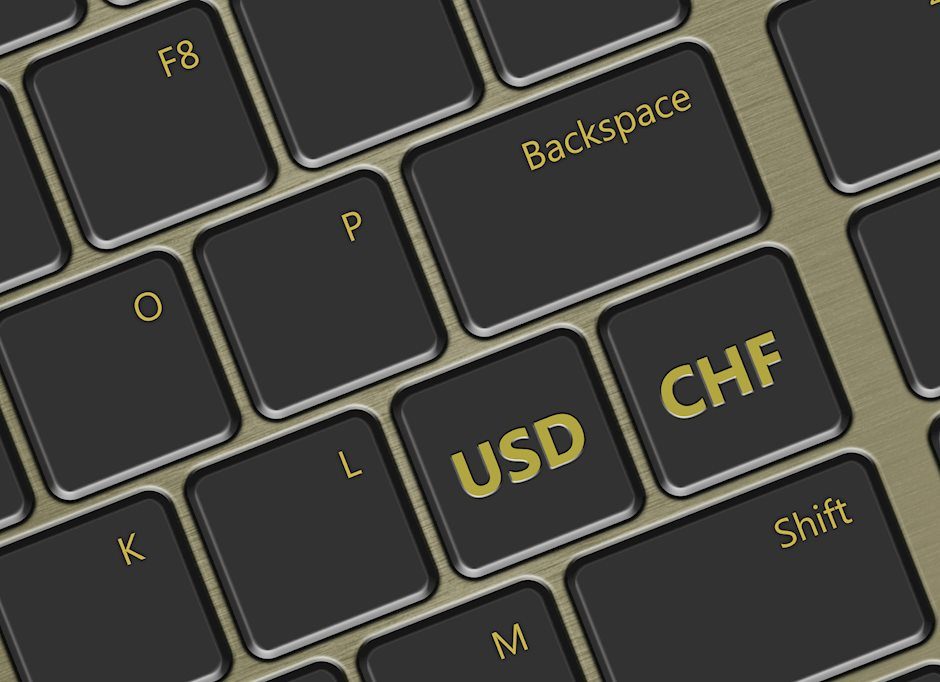USD/CHF maintains position above 0.8950 near its two-week highs
- USD/CHF holds ground near its two-week high of 0.8983.
- US GDP Annualized (Q1) is expected to slightly increase by 1.4%, against the previous growth of 1.3%.
- The US Dollar may draw some support from the higher yields.

USD/CHF trades around 0.8980 during the European hours on Thursday, grappling to hold ground near its two-week high of 0.8983, recorded on Wednesday. Investors await the release of the US GDP Annualized (Q1) due later in the North American session. The report is expected to show a slight increase of 1.4% from the previous growth of 1.3%.
The US Dollar (USD) struggles possibly due to traders’ anticipation of Friday’s Core PCE Price Index inflation, projected to decrease year-over-year to 2.6% from the previous 2.8%. This data is seen as the Federal Reserve's (Fed) preferred inflation gauge. Market participants are likely to hope that signs of easing inflation will encourage the Federal Reserve (Fed) to consider rate cuts sooner rather than later.
The US Dollar Index (DXY), which measures the value of the US Dollar (USD) against the six other major currencies, may draw support from the higher US Treasury yields. 2-year and 10-year yields stand at 4.75% and 4.33%, respectively, at the time of writing.
Reuters cited Fed Governor Michelle Bowman repeating her view on Tuesday that holding the policy rate steady for some time will likely be enough to bring inflation under control. Meanwhile, Fed Governor Lisa Cook said it would be appropriate to cut interest rates "at some point," given significant progress on inflation and a gradual cooling of the labor market. However, Cook remained vague about the timing of the easing.
On the Swiss side, the economic calendar remains barren during the session, leaving the USD/CHF pair at the mercy of broader market trends and data from the United States (US). On Friday, the KOF Swiss Economic Institute may release the Swiss Leading Indicator for June, which measures future trends of the overall economic activity. The survey is expected to release an improved reading of 101.0 compared to the previous 100.3 reading.
Swiss Franc FAQs
The Swiss Franc (CHF) is Switzerland’s official currency. It is among the top ten most traded currencies globally, reaching volumes that well exceed the size of the Swiss economy. Its value is determined by the broad market sentiment, the country’s economic health or action taken by the Swiss National Bank (SNB), among other factors. Between 2011 and 2015, the Swiss Franc was pegged to the Euro (EUR). The peg was abruptly removed, resulting in a more than 20% increase in the Franc’s value, causing a turmoil in markets. Even though the peg isn’t in force anymore, CHF fortunes tend to be highly correlated with the Euro ones due to the high dependency of the Swiss economy on the neighboring Eurozone.
The Swiss Franc (CHF) is considered a safe-haven asset, or a currency that investors tend to buy in times of market stress. This is due to the perceived status of Switzerland in the world: a stable economy, a strong export sector, big central bank reserves or a longstanding political stance towards neutrality in global conflicts make the country’s currency a good choice for investors fleeing from risks. Turbulent times are likely to strengthen CHF value against other currencies that are seen as more risky to invest in.
The Swiss National Bank (SNB) meets four times a year – once every quarter, less than other major central banks – to decide on monetary policy. The bank aims for an annual inflation rate of less than 2%. When inflation is above target or forecasted to be above target in the foreseeable future, the bank will attempt to tame price growth by raising its policy rate. Higher interest rates are generally positive for the Swiss Franc (CHF) as they lead to higher yields, making the country a more attractive place for investors. On the contrary, lower interest rates tend to weaken CHF.
Macroeconomic data releases in Switzerland are key to assessing the state of the economy and can impact the Swiss Franc’s (CHF) valuation. The Swiss economy is broadly stable, but any sudden change in economic growth, inflation, current account or the central bank’s currency reserves have the potential to trigger moves in CHF. Generally, high economic growth, low unemployment and high confidence are good for CHF. Conversely, if economic data points to weakening momentum, CHF is likely to depreciate.
As a small and open economy, Switzerland is heavily dependent on the health of the neighboring Eurozone economies. The broader European Union is Switzerland’s main economic partner and a key political ally, so macroeconomic and monetary policy stability in the Eurozone is essential for Switzerland and, thus, for the Swiss Franc (CHF). With such dependency, some models suggest that the correlation between the fortunes of the Euro (EUR) and the CHF is more than 90%, or close to perfect.
Author

Akhtar Faruqui
FXStreet
Akhtar Faruqui is a Forex Analyst based in New Delhi, India. With a keen eye for market trends and a passion for dissecting complex financial dynamics, he is dedicated to delivering accurate and insightful Forex news and analysis.

















